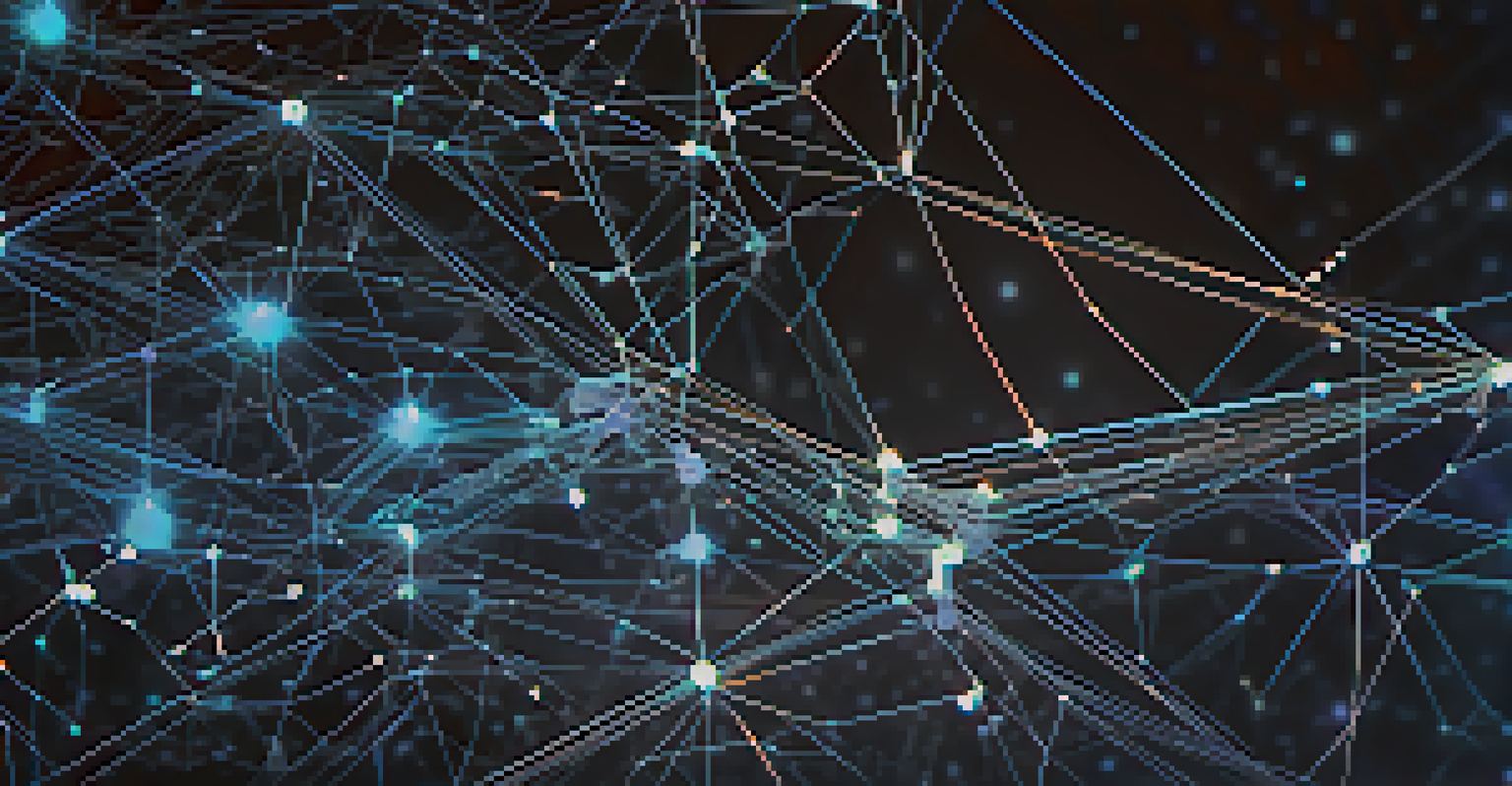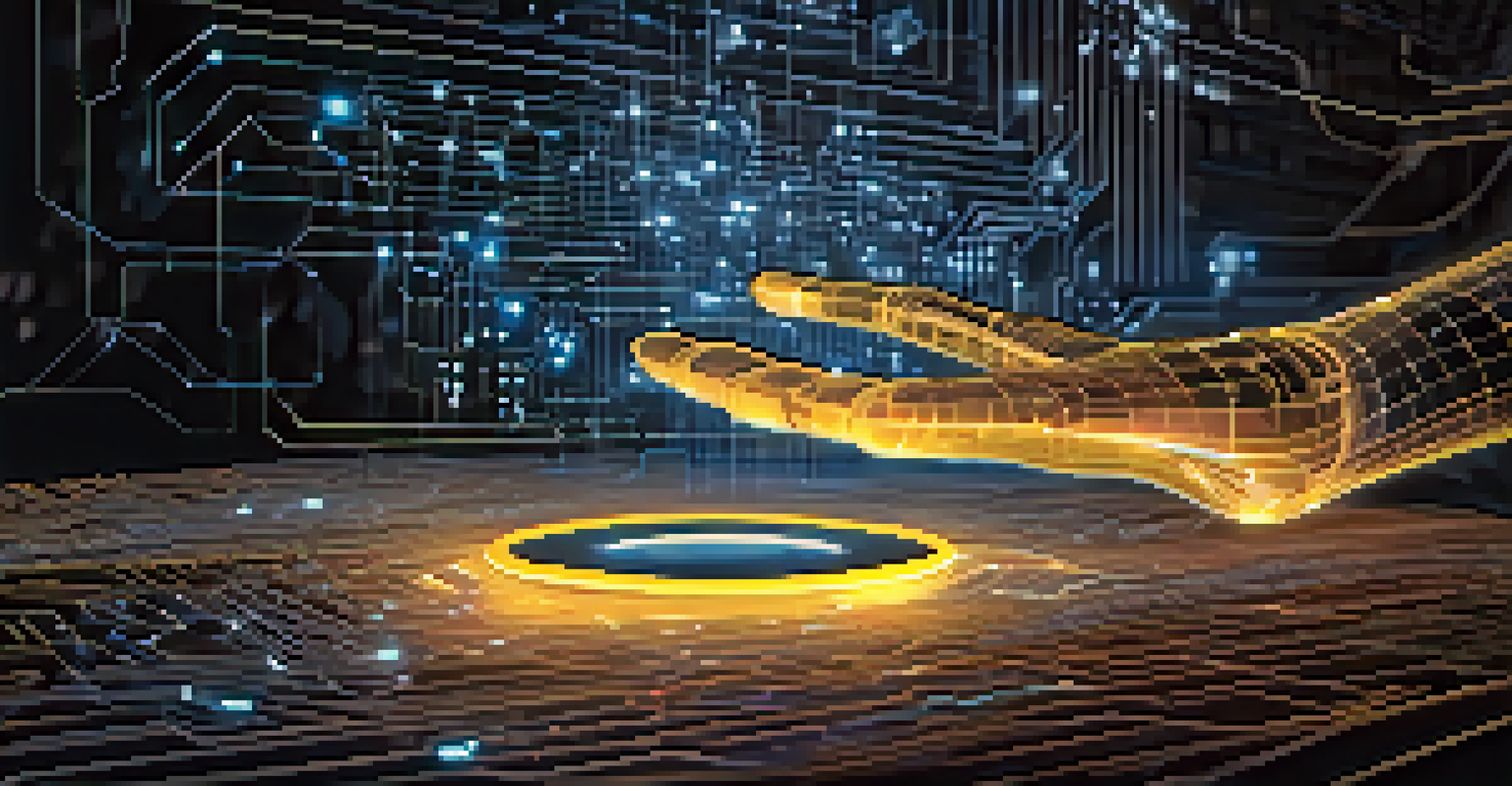AI and Smart Contracts: A Perfect Cryptocurrency Match

Understanding AI and Smart Contracts in Cryptocurrency
Artificial Intelligence (AI) and smart contracts are two revolutionary technologies that are transforming the landscape of cryptocurrency. AI refers to the capability of machines to imitate human intelligence, while smart contracts are self-executing contracts with the agreement directly written into code. When combined, these technologies can create systems that are not only more efficient but also more secure.
Artificial intelligence is the new electricity.
Imagine AI as a highly skilled assistant who can automate tasks and provide insights, while smart contracts serve as the legal framework that executes agreements automatically. This combination allows for automated transactions that are trustworthy and devoid of human errors. Essentially, they work hand-in-hand to eliminate friction in digital transactions.
In a world where trust is paramount, understanding how AI and smart contracts interact is essential. They promise to enhance transparency, reduce costs, and streamline processes, making them a perfect match for the demanding world of cryptocurrency.
How AI Enhances Smart Contracts Functionality
AI can significantly improve the functionality of smart contracts by enabling them to learn from data and adapt over time. This means that smart contracts can analyze past transactions and make better decisions in future contracts. For instance, an AI-enhanced smart contract could adjust terms based on market conditions or user behavior, ensuring fairness and relevance.

By integrating AI, smart contracts can also identify potential risks and prevent fraud more effectively. They can analyze patterns and detect anomalies, which is crucial in the fast-paced world of cryptocurrency. This proactive approach not only secures transactions but also builds trust among users.
AI Boosts Smart Contracts' Efficiency
Artificial Intelligence enhances smart contracts by enabling them to learn from data and adapt to changing conditions, improving decision-making and reducing risks.
Furthermore, AI can help optimize contract performance by predicting outcomes and suggesting adjustments. This level of intelligence turns static contracts into dynamic tools that can evolve with changing circumstances, making them incredibly valuable in the cryptocurrency market.
Real-World Applications of AI and Smart Contracts
Various industries are already harnessing the power of AI and smart contracts to revolutionize operations. For example, in supply chain management, AI can predict delays, while smart contracts can automatically adjust delivery terms based on real-time data. This synergy enhances efficiency, reduces costs, and improves customer satisfaction.
Smart contracts are the digital equivalent of traditional contracts, providing a mechanism to automate and enforce agreements without intermediaries.
In the finance sector, lending platforms are utilizing AI algorithms to assess credit risk, while smart contracts execute loans transparently without intermediaries. This collaborative approach not only speeds up transactions but also democratizes access to financial services, allowing more people to benefit.
Moreover, digital identity verification is another area where AI and smart contracts shine. They can streamline the verification process by automatically validating identities based on pre-established criteria, reducing the chances of identity theft and fraud.
Challenges in Integrating AI with Smart Contracts
While the fusion of AI and smart contracts offers numerous benefits, it also comes with its own set of challenges. One major concern is the issue of data privacy. Since AI relies on vast amounts of data to function effectively, ensuring that personal information remains secure is paramount. Without robust measures, users may be hesitant to share their data.
Another challenge lies in the complexity of programming smart contracts. Creating a smart contract that effectively utilizes AI requires specialized knowledge and skills. This can lead to higher costs and longer development times, potentially slowing down adoption.
Real-World Applications Abound
Industries like finance and supply chain are leveraging AI and smart contracts to streamline processes, reduce costs, and enhance customer satisfaction.
Furthermore, the legal implications of AI-driven smart contracts are still being explored. Questions around liability and accountability arise when decisions are made by algorithms, making it essential for regulatory frameworks to evolve alongside these technologies.
The Role of Blockchain in AI and Smart Contracts
Blockchain technology serves as the backbone for both AI and smart contracts, providing a decentralized and secure environment for transactions. This ensures that all data processed by AI remains immutable and traceable, which is vital for maintaining trust among users. Essentially, blockchain adds an extra layer of security and transparency.
Moreover, the decentralized nature of blockchain allows AI systems to access a broader range of data, enhancing their learning capabilities. By tapping into diverse datasets, AI can improve its decision-making processes, resulting in smarter and more efficient smart contracts.
In this way, blockchain not only supports AI and smart contracts but also amplifies their potential. Together, they create a robust ecosystem that enhances transaction security and efficiency in the cryptocurrency landscape.
Future Trends: AI and Smart Contracts Evolution
As technology continues to evolve, the integration of AI and smart contracts is expected to see significant advancements. We may witness the rise of fully autonomous systems that can execute complex contracts without human intervention. This could revolutionize various industries by fostering true automation and efficiency.
Additionally, expect to see improvements in natural language processing (NLP) capabilities. This means that smart contracts could be written and understood in plain language, making them accessible to non-technical users. This democratization of technology will likely lead to broader adoption and innovation.
Challenges in Integration Persist
Data privacy concerns and the complexity of programming AI-driven smart contracts pose significant challenges that must be addressed for wider adoption.
Furthermore, as regulatory frameworks adapt to these technologies, we can anticipate a surge in hybrid models combining traditional legal practices with AI and smart contracts. This evolution will create new opportunities and applications that will shape the future of cryptocurrency.
Conclusion: Embracing the Future of Cryptocurrency
The integration of AI and smart contracts is poised to reshape the cryptocurrency landscape, offering enhanced efficiency, security, and adaptability. As we continue to explore the potential of these technologies, it’s essential to embrace the changes they bring and remain open to new ideas. The future is bright for those willing to innovate.
By understanding and leveraging the strengths of both AI and smart contracts, businesses can unlock new value propositions and drive growth in an increasingly competitive market. This synergy not only benefits companies but also empowers users to engage with cryptocurrency confidently.

Ultimately, the perfect match of AI and smart contracts represents a leap toward a more automated, secure, and transparent future in cryptocurrency. As we navigate this exciting journey, staying informed and adaptable will be key to success.